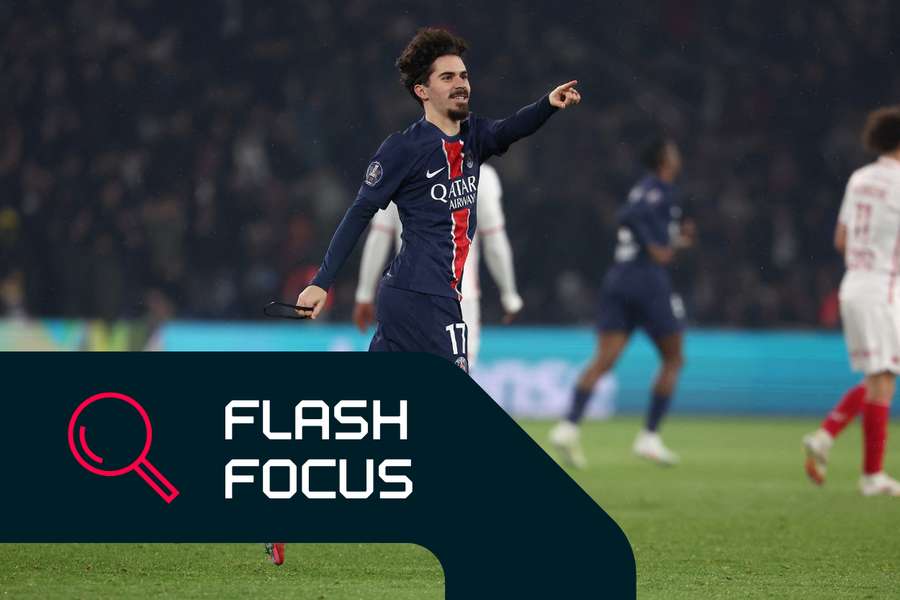In the north of Portugal came Vitinha, the son of Vítor Manuel, a midfielder who made almost 200 appearances in the Portuguese League, most of them for local club Desportivo das Aves.
Vitinha's precocious talent was spotted by FC Porto, who began to build what would probably be the best generation of youngsters in the club's history. At just 11 years old, Vitinha - who was even a Benfica fan at the time - was already wearing blue and white, along with players like Joao Mario and Fabio Vieira.
In a team full of talent (Diogo Costa, for example), Vitinha's abilities soon stood out, which immediately served as a clear testament to the midfielder's quality. In such a well-equipped generation, it was hard not to be charmed by this youngster's qualities straight away. Difficult, but not impossible...
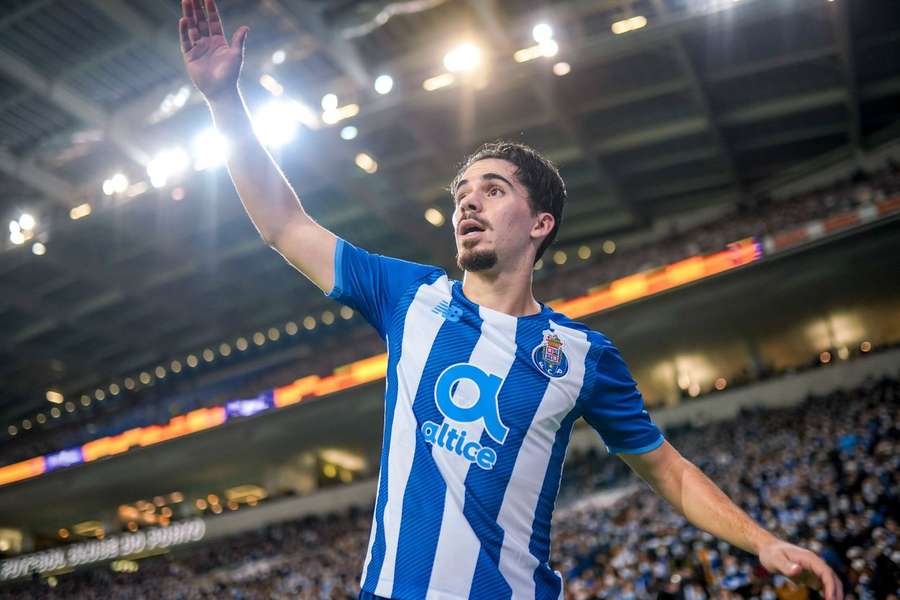
Although he helped the club win the Youth League and the national youth title, FC Porto's talent recruitment team failed to notice what seemed to be there for all to see. Luckily for the Dragons, Wolverhampton Wanderers weren't paying attention either.
Despite standing out in the under-19 team and being praised by B team coach Rui Barros, Vitinha didn't have as many opportunities as he would have expected in FC Porto's first team. It's true that he was promoted by Sergio Conceicao, but after 12 games and a renewal, he left for England in a surprising way, not least because the clause was so low (20 million euros). The blue and white fans quickly considered the decision to be "mismanagement".
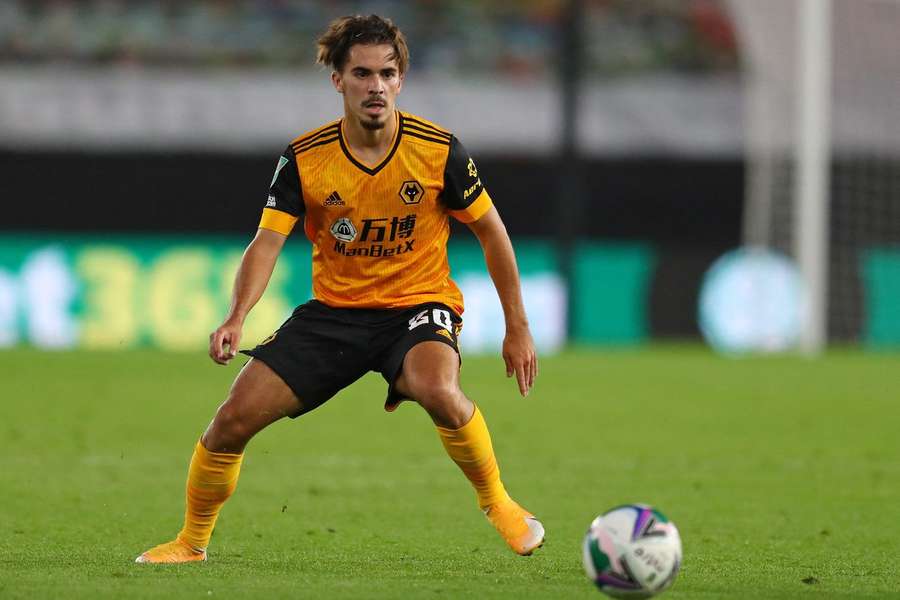
Failed Wolves stint and return to Porto
Aware of Vitinha's abilities, Nuno Espirito Santo believed that the player's technical skills combined with his intelligence would be enough to overcome the demands of the Premier League, despite the midfielder's lack of experience so far.
The truth is that Vitinha wasn't able to excel in English football. Alongside midfielders like Joao Moutinho and Ruben Neves, he only started five times in the league. What was bad news for the player was a celebration for FC Porto fans. Against all the expectations of those who knew and didn't doubt his talent, Vitinha returned to Invicta.
If his substitute status in England came as a surprise, the fact that Vitinha started the season as Bruno Costa's understudy outraged the Porto fans even more. Was the young midfielder just a product of social media? A youngster overrated for what he did in training? Was another talent going to be lost in the transition to senior football?
The 2021/22 season will forever mark Vitinha's career. After all, it was there that he finally established himself at his parent club. But the truth is that, after four months, the midfielder had only started four times.
In December, Conceicao gave Vitinha his first sequence of first-team appearances against Portimonense, Atletico Madrid, SC Braga, Vizela and Benfica (twice). At the beginning of January, the league announced the awards for best midfielder and best player of the month - Vitinha won both.
Vitinha's influence was such that at the end of the season, with FC Porto winning the double, they were known as "the best of the Sergio Conceicao era". Vitinha, voted Young Player of the Year in the Portuguese League, was unanimously praised.
41.5 million euro move
The fate of Portuguese clubs is somewhat like this: train to sell. The talent released by Portugal in recent years has served little purpose for the national clubs, but it has worked as a way of balancing the books.
At a time when FC Porto's accounts were so unbalanced (more than we knew), the 41.5 million euros that Paris Saint-Germain paid to sign Vitinha was obligatory, but it was very little.
After a stellar season, which saw him launched by Fernando Santos into the national team, Vitinha signed for a PSG side that still had the Messi-Neymar-Mbappe trio but whose instability and lack of competitiveness in the league gave the impression of being wasted.
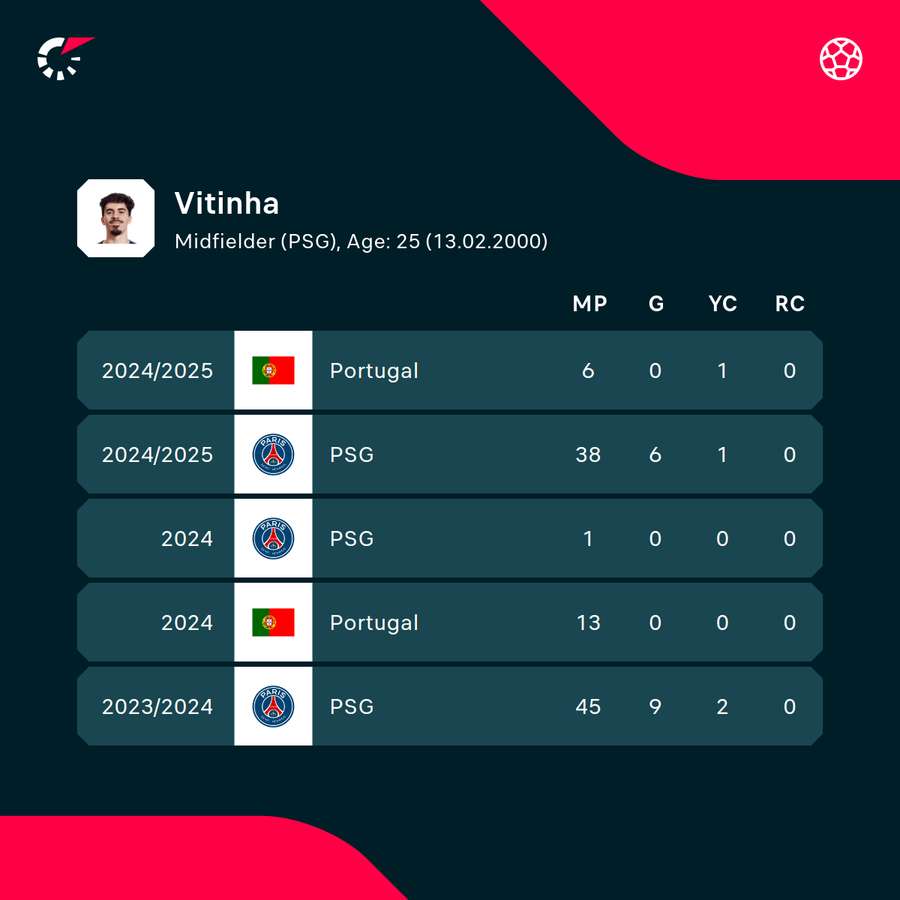
Although he was almost always a starter, Vitinha didn't convince the PSG fans straight away. But the following season, when the trio was broken up and Luis Enrique arrived, there was no doubting the Portuguese player's talent. The Spaniard himself was convinced: "For me, Vitinha is the player of the season".
After Mbappe, Vitinha was the most-used player in the former Spanish coach's first season in the French capital, and Luis Enrique saw the Portuguese international as the centre of the 2024/25 project, handing over the PSG baton to the little maestro.
Star status to be confirmed in the national team
Despite the importance placed on him by the Spanish coach, Vitinha was still seen as a kind of silent genius. Roberto MartInez himself, who had been hired as Portugal coach in the meantime, was slow to realise the talent he had on his hands.
With a big squad and plenty of time to experiment, the PSG player started only once in qualifying for EURO 2024. Ignored for Joao Palhinha's physical and defensive ability, Vitinha was overlooked.
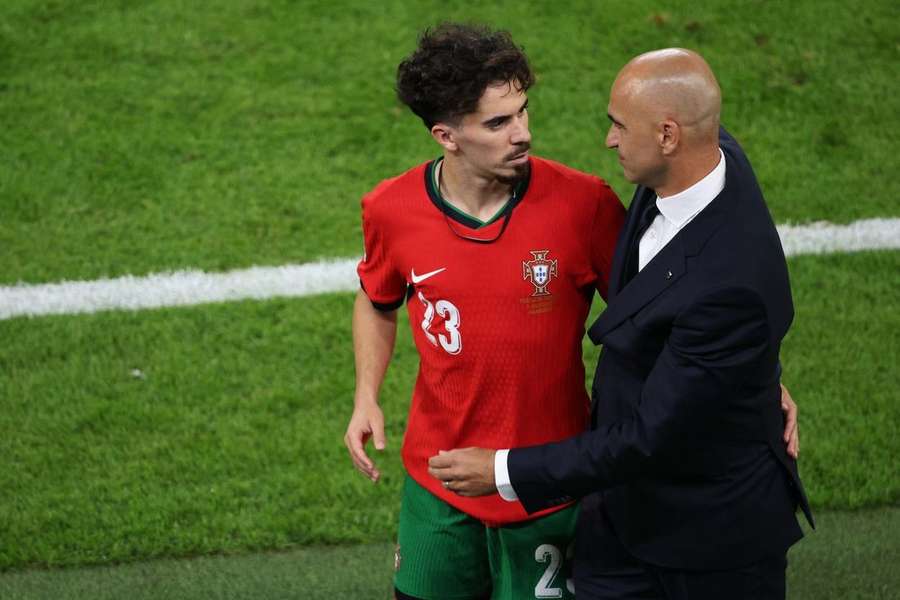
However, in a sort of exercise of conscience and inevitability, given the Portuguese international's season, Martinez gave him a place in the team in the matches before the tournament in Germany. That is when Vitinha became a starter. One of the best in the world in one of the best teams in the world. It finally made sense.
But even that wasn't enough for Martínez to stop looking at other players. While it's true that Vitinha started in four of the five matches at the European Championship, it's also true that he was substituted in every one of those games, even though he was almost unanimously the best Portuguese player to play in Germany.
If the previous seasons served to convince Enrique and Martinez (not completely), the 2024/25 season is the time when the world woke up to the talent of Vitinha, "the best midfielder in Europe" according to the national coach.
At the age of 25, he is PSG's leader in Ligue 1 and the Champions League, with spectacular displays on stages like Anfield.
Vitinha has finally reached his rightful place: the top of the football world. Now, 41.5 million euros certainly seems like a bargain.

